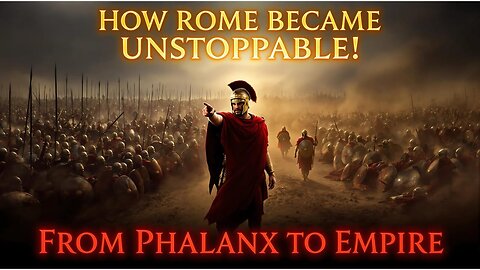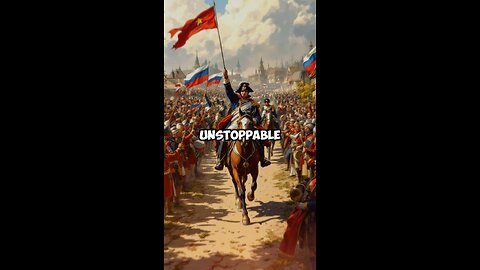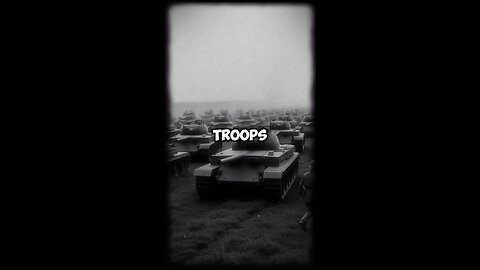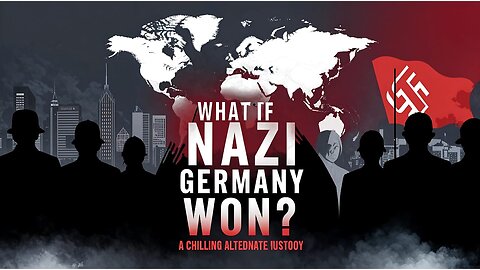The military evolution of the Roman Empire Part 1
Buried Epochs
The military evolution of the Roman Empire was marked by several key transformations:
- Early Republic (509–27 BC):
Initially, Rome's army was a citizen militia based on the hoplite phalanx. Reforms by leaders like Marius introduced a professional standing army, with soldiers serving for longer terms in exchange for land upon retirement.
- Imperial Era (27 BC – AD 476):
Augustus further professionalized the army, creating a more centralized and disciplined force with legions stationed across the empire. The legions were supplemented by auxiliary units, which included non-citizen soldiers offering specialized skills.
- Tactical Adaptations:
Over centuries, Roman tactics evolved from the rigid phalanx to the more flexible manipular system, then to the cohort system, allowing for greater mobility and adaptability on the battlefield.
- Late Empire Changes:
Facing numerous threats, the late Roman military saw the introduction of more cavalry, including elite units like the cataphracts, and an increased reliance on barbarian federates (foederati) due to manpower shortages.
- Fortifications and Strategy:
Romans excelled in engineering, constructing extensive fortifications like the Limes Germanicus and Hadrian's Wall, which not only defended but also defined the empire's borders.
- Decline and Fall:
As the empire's resources dwindled, the quality of the military declined, with less training and more reliance on barbarian mercenaries, contributing to the eventual fall of the Western Roman Empire.
This evolution reflects Rome's adaptability, from a city-state's militia to one of history's most powerful and enduring military forces.
138
views
1
comment
The old history of Columbus
Buried Epochs
If Columbus had never reached America, the course of world history would have been significantly altered:
- **European Awareness of the Americas:** The discovery of the Americas might have been delayed, potentially by other explorers like John Cabot, or even later by different nations. This delay could have shifted colonial dynamics, with different European powers gaining influence in the New World.
- **Cultural Exchange:** The Columbian Exchange, which involved the transfer of plants, animals, culture, human populations, technology, diseases, and ideas between the Americas, West Africa, and the Old World in the 15th and 16th centuries, would not have occurred in the same way or at the same time. This could have meant different diets, different agricultural practices, and a different spread of diseases.
- **Indigenous Populations:** Without Columbus's arrival, the indigenous peoples of the Americas might have avoided the immediate and devastating impact of European diseases, colonization, and the subsequent cultural and demographic changes. Their societies might have evolved differently or interacted with other cultures under different circumstances.
- **Global Politics and Economy:** The wealth from the Americas, including gold, silver, and other resources, significantly fueled European economies and spurred the Age of Exploration. Without this influx, European economic development might have been slower or taken a different path. This could also mean a different balance of power in Europe, with less impetus for countries like Spain to become global empires.
- **Slavery and the Transatlantic Slave Trade:** The demand for labor in the Americas led to the large-scale transatlantic slave trade. If Columbus had not made his voyages, this system might not have developed in the same way or at all, potentially altering the history of Africa, the Americas, and Europe profoundly.
In summary, Columbus's non-discovery would have led to a world with potentially different geopolitical landscapes, cultural exchanges, and demographic compositions. However, history might have found another path to similar outcomes or entirely different ones.
230
views
1
comment
The Russia old history
Buried Epochs
If Napoleon had successfully conquered Russia, the geopolitical landscape of Europe would have been dramatically altered. This victory could have solidified French dominance, extending its influence deep into Eastern Europe. The Russian campaign's failure was a significant blow to Napoleon's empire, so its success might have delayed or even altered the course of his eventual downfall. Culturally, French ideas and the Napoleonic Code could have further permeated Russian society, potentially leading to a more unified European legal and cultural framework under French influence. However, maintaining control over such a vast and resistant territory would have presented immense logistical and military challenges, possibly overextending Napoleon's resources and altering the dynamics of European alliances and conflicts.
205
views
1
comment
The ghost army of Mamluks.
Buried Epochs
The term "Ghost Army of Mamluks" doesn't correspond to any historical military unit or event related to the Mamluks. However, if we were to creatively interpret this in context:
The Mamluks, a powerful military caste that ruled Egypt from 1250 to 1517, were renowned for their battlefield tactics and resilience against formidable foes like the Mongols and Crusaders. Imagining a "Ghost Army" of Mamluks might evoke a scenario where these elite warriors, through their strategic genius or posthumous legends, appeared to be omnipresent or invincible, much like a spectral force on the battlefield. Their legacy, marked by their disciplined cavalry and archery, could be seen as haunting the annals of history with tales of their unmatched military prowess. However, this is purely speculative as no such "Ghost Army" existed in historical records associated with the Mamluks.
144
views
Marriage in Ancient Rome.
Buried Epochs
Marriage in Ancient Rome was both a social and legal institution, primarily aimed at securing alliances, property, and legitimate heirs. Known as "justae nuptiae," it required mutual consent, a dowry, and certain ceremonies like the "confarreatio" for patricians. Women gained some legal identity but were under the husband's or father's authority, "manus." Divorce was possible but typically initiated by men. Marriage symbolized stability, yet was pragmatic rather than romantic, focusing on civic duty and family lineage. #history #historylover
153
views
1
comment
How British Empire used spies to control half of the world.
Buried Epochs
The British Empire's extensive use of espionage was pivotal in maintaining control over its vast territories, which once covered about a quarter of the Earth's land surface. Here's how they utilized spies:
**Espionage Networks**: The British employed a sophisticated network of spies, both at home and abroad. Intelligence services like MI5 for domestic security and MI6 for foreign intelligence were crucial. These agencies were established in 1909 and played significant roles in both World Wars and beyond. The intelligence gathered helped in understanding the political, military, and economic conditions of regions under British influence or those of interest.[](https://www.iwm.org.uk/history/secret-war-what-you-need-to-know)
**Recruitment and Techniques**: British spies were often diplomats, consuls, or even disguised as travelers or archaeologists. They would infiltrate local societies, gather intelligence, and sometimes incite unrest to further British interests, as seen in efforts within the Ottoman Empire. They used methods like intercepting mail, employing codes, and engaging in counterintelligence to prevent enemy espionage.[](https://www.britishdeepstate.com/ottoman-empire/)
**Influence and Subversion**: In colonial settings, spies were used to manipulate local politics and to implement the 'divide and rule' strategy effectively. By understanding local dynamics through espionage, British authorities could often align or manipulate local factions or leaders to serve imperial interests. This was particularly evident in India, where understanding local alliances and rivalries was key to maintaining control.[](https://www.newyorker.com/magazine/2022/04/04/the-british-empire-was-much-worse-than-you-realize-caroline-elkinss-legacy-of-violence)
**Military Intelligence**: During conflicts, such as the American Revolutionary War or the various colonial uprisings, British intelligence was instrumental. They would gather data on troop movements, supply lines, and local support for rebels or loyalists, adjusting strategies accordingly. This included the use of both overt military intelligence units and covert operations.[](https://www.mountvernon.org/george-washington/the-revolutionary-war/spying-and-espionage/spy-techniques-of-the-revolutionary-war)
**Counterintelligence and Security**: The British were adept at counterintelligence, which involved not only gathering intelligence but also protecting their own secrets. The use of double agents, like those in Operation FORTITUDE during WWII, showcased how British intelligence could manipulate enemy perceptions and actions. This was crucial in maintaining the security of British military operations and colonial administration.[](https://www.nationalww2museum.org/war/articles/d-day-spies)
**Technological and Cryptographic Advances**: The British were at the forefront of developing new espionage technologies, notably during WWII with codebreaking at Bletchley Park. Their ability to decrypt enemy communications gave them strategic advantages in both military and political arenas.[](https://www.iwm.org.uk/history/secret-war-what-you-need-to-know)
Through these methods, the British Empire was able to exert control over a significant portion of the world by maintaining informational superiority, manipulating local politics, and ensuring that both overt and covert operations were aligned with imperial objectives. However, it's important to recognize that while effective, these strategies also led to significant human cost and resistance, shaping the narrative of British colonial history.
173
views
2
comments
Did you know the strange case of ghost army of WWII ?
Buried Epochs
During World War II, the U.S. Army created a unique and secretive unit known as the "Ghost Army." Officially designated as the 23rd Headquarters Special Troops, this unit was tasked with deceiving the German forces about the location and strength of Allied troops. Activated on January 20, 1944, it consisted of 1,100 soldiers, including artists, actors, and engineers, who specialized in various forms of deception.
The Ghost Army employed a range of ingenious tactics:
- Inflatable Equipment: They used inflatable tanks, artillery, and even aircraft, which were remarkably realistic from a distance. These decoys helped to give the illusion of a larger military presence.
- Sonic Deception: The unit deployed sound trucks equipped with massive speakers that could broadcast the noises of troop movements, tank engines, and construction sounds to simulate the presence of a significant military force.
- Fake Radio Traffic: Radio operators sent out misleading Morse code signals to confuse German intelligence about the positions and intentions of the Allied forces.
- Visual and Costume Illusions: Soldiers would impersonate other units, complete with appropriate uniforms, insignia, and even fake generals, to spread disinformation.
The Ghost Army conducted 22 major operations, from Normandy to the Rhine, contributing to the success of Allied advances by drawing enemy attention away from real troop movements. Their efforts are credited with saving between 15,000 to 30,000 lives by misleading the enemy, allowing actual combat units to move undetected.
The secrecy surrounding the Ghost Army was so tight that their contributions remained classified for over 40 years, long after the war ended, with many members sworn to silence. It wasn't until the mid-1990s that their story was declassified, leading to recognition for their innovative approach to warfare. In 2022, members of the Ghost Army were awarded the Congressional Gold Medal for their unique service, acknowledging their significant role in WWII's European theater.
This tale of the Ghost Army not only showcases the creative side of military strategy but also underscores the importance of art and illusion in the context of warfare.
154
views
1
comment
Horrifying tactics about Genghis Khan 😱
Buried Epochs
Genghis Khan's tactics were not just about physical conquest but about creating a psychological impact that would last long after the battles were fought. His methods were tailored to maximize the fear factor, ensuring that resistance was minimal across his expanding empire. His legacy, while monumental in terms of empire-building, is also marked by these horrifying tactics which have left a dark imprint on history. #historymatters #genghiskhan
219
views
1
comment
This is not a time to Quit
Buried Epochs
Motivation is the inner drive that propels us forward, especially when the going gets tough. It's the spark that ignites action and sustains effort, even when challenges loom large. This isn't a time to quit; it's a moment to harness that motivation, to remember why you started, and to push through with renewed vigor. Every obstacle is an opportunity to grow stronger, to prove to yourself that you can overcome. Let motivation be your guide to perseverance and success.
140
views
2
comments
Germany old History
Buried Epochs
If Hitler had won World War II, the geopolitical landscape would have been dramatically altered. Europe might have been reshaped under Nazi rule, with a focus on racial and ideological purity, leading to continued genocide and oppressive policies against Jews, Slavs, and other groups deemed inferior by Nazi ideology. Germany would likely have annexed much of Eastern Europe, creating a vast German empire or "Greater Germanic Reich." The United Kingdom could have been forced into a negotiated peace or occupied, fundamentally changing its democratic institutions. In this scenario, the United States might have faced a prolonged standoff or even a new form of cold war with the Nazi regime, given the ideological opposition. The Soviet Union would have either been completely dismantled or significantly reduced in influence and territory, with potentially puppet states emerging in its place. Global alliances would shift, with nations aligning or opposing based on their stance towards Nazi Germany's new world order. However, this alternate history would also consider the internal contradictions of the Nazi regime, suggesting that even with victory, the system might have faced economic and administrative challenges leading to its eventual decline or transformation.
308
views
3
comments









